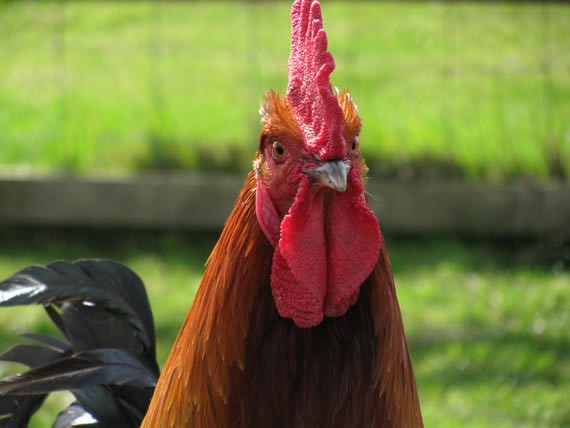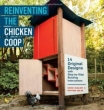Transporting poultry and introducing new hens
You will need a safe, secure, comfortable means of transporting your new hens to their new home. You can buy custom made crates, but a cardboard box with ventilation, a good lid and lined with straw or shredded newspaper will do. A cat carry box is also useful. Try to make sure the base is non-slip, so that the risk of leg damage is minimised.
Integrating new hens
If you are bringing new hens into an established flock, keep them separate, if you can, for a week or so to make sure they are healthy.
We've found that the best way to introduce new hens is to put them in a run near the existing flock and corn them together so they can see each other but are not in physical contact. Do this for a week or so. Then put the new hens into the roosting area with the old ones at night - the idea being that when they all come down in the morning, the old hens don't realise that there are new hens in the flock.
If you don’t have the accommodation to manage this, put the new hens in at night and keep your fingers crossed!
Remember to be extra vigilant at bedtime, as the new hens may need some guidance and encouragement to get back to the henhouse for the first few nights. Hens see very poorly in the dark, so if they are away from the house when darkness falls, they will find an alternative roost. Better to invest the time now than provide Mr Fox with an easy meal.
Offering a feed of corn just as the light fades will bring your hens back to the henhouse, then you can shepherd them to bed. Feeding corn at bedtime also gives them something to digest overnight.
Dealing with bullying
Keep an eye on the flock for evidence of persistent bullying. Hens have a clear hierarchy so a bit of chasing and the odd peck is normal in maintaining the rank order; if hens are free range or in a large run, the "victim" will just run away. However, sometimes this normal behaviour becomes bullying and the bullied hen may have a miserable existence. If a hen is off-colour or unwell, she may become a victim of bullying.
 Hector, our Copper Black Maran cockerel, keeps the peace and minimises bullying
Hector, our Copper Black Maran cockerel, keeps the peace and minimises bullying
There are various ways of dealing with bullying; one is to isolate the bully for a few days, another is to introduce a cockerel.
- Previous « Hybrids
- Next Poultry Housing »

About Rosemary Champion
Rosemary lives on a 12 acre smallholding in Angus, in the east of Scotland, where she keeps Ryeland Sheep, Shetland cattle and assorted poultry. She was destined to be a smallholder from an early age.
Further Reading
 Chicken & Eggs: River Cottage Handbook No.11 Mark Diacono |  Storey's Guide to Raising Chickens Gail Damerow |  A Beginners Guide to Caring for Ex-Batts Jo Barlow |  Reinventing the Chicken Coop Matthew Wolpe |  Chickens: The Essential Guide to Choosing and Keeping Happy, Healthy Hens Suzie Baldwin |
Smallholding shop
When you click links below and make a purchase, this may result in this site earning a commission from eBay.

Hentastic Foraging Cake Feeder
Especially designed… from £2.13 + p&p

Mushroom Poultry Drinker 1.3li
Mushroom Poultry Drinker.… from £3.02 + p&p

Galley Pot Feeder each
Galley Pot Feeder. Durable… from £0.74 + p&p

Hen House Freshener 2kg
Keep those ammonia smells away… from £11.95 + p&p



















